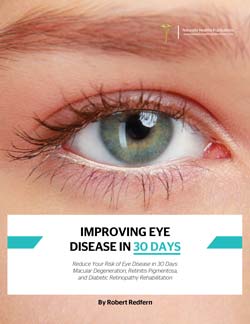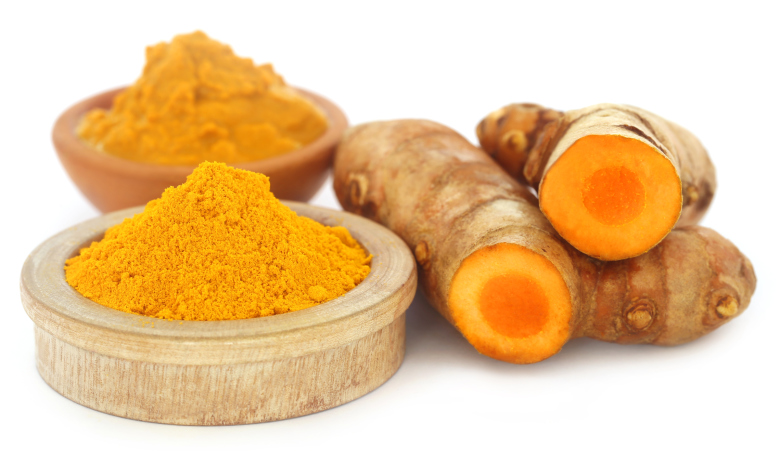Health News (Week 33 – 2015)
By Robert Redfern
This week I am featuring an article I asked our resident eyesight researcher, David Meyer, to put together. Just to remind you, David was a customer using HealthPoint™ over 20 years ago and after noticing good results (using it on his family), he asked me for a job when he retired from the UK police force, nearly 15 years ago. He has officially retired from us but still manages to fit in some research and writing.
This week’s article is about a form of blindness caused by blocked arteries. We have had wonderful results helping sufferers with this over the years but as David says, ‘prevention is better’ than the cure. And much easier, I may add.
Retinal Occlusion
The Circulation
The eye has a high requirement for blood and oxygen, particularly in the retina. The blood provides nutrients to the cells and clears waste products.
As with any circulatory system, what goes in must come out. Blood is supplied by the retinal artery which is found in the middle of the optic nerve until it gets close to the eye and splits into two branches. Blood leaves by the central retinal vein that also splits into branches.
Occlusion
Occlusion refers to the blocking or obstruction of any of these blood vessels. The effects depend to some degree on where the occlusion occurs.
If the main artery or vein is occluded, then it is more serious than if a branch is obstructed. All can lead to some loss of sight and should be regarded as serious.
What causes it?
Arterial occlusion is caused in much the same way as elsewhere in the cardiovascular system. Inflammation causes plaque deposits, which slow or block the blood flow and can lead to an embolism (blood clot).
Vein occlusion may involve an embolism (blood clot), but can also occur where an artery crosses a vein and presses on it because the artery is inflamed and swollen.
Risk factors include:
- Age – most retinal vessel occlusions happen in people over 65
- High blood pressure
- High cholesterol levels
- Diabetes
- Smoking
- Eating grains, cereals and other inflammatory foods
What are the Effects?
Normally only one eye is affected, but if the underlying cause is not dealt with, there is a risk to the second eye.
There will always be some loss of sight, ranging from a progressive dimming to sudden total loss, depending on where the occlusion occurs.
The most serious effect occurs when the occlusion is in the artery, as this prevents nutrients getting to the retinal cells and the damage may be irreversible. If it is in the vein, then deterioration may be noticed over several days.
What Should I Do?
If you have a sudden loss of sight, go to A&E straight away. Time is important as the retina deteriorates quickly if the blood supply is restricted.
If you notice a progressive deterioration over a short time, then see an optometrist without delay.
If you have been diagnosed with occlusion, then some sight loss may be permanent, but some may return if the direct cause is removed, e.g. a clot or macular swelling.
Prevention is Better Than Cure
As will be appreciated, this is a serious issue and one that is best avoided.
I have written about it because it underlines the importance of looking after the health of your whole body. The eye is a particularly noticeable manifestation of cardiovascular health, whereas other issues may not be recognised.
Follow as much of the healthy living advice that you have been given through Robert’s newsletters and books – Click Here to download Improving Eye Disease in 30 Days.
The following supplements are essential to take immediately:
BlockBuster AllClear – A full formula with 16 top class ingredients including Serrapeptase and Nattokinase for keeping your arteries clear of inflammation and clots.
ReFocus Vinpocetine for maintenance of the small blood vessels in the eye and brain.
Maxifocus – Super nutrients in a sublingual formula for rapid absorption.
Taurine – Helps to strengthen cell walls, clear detritus and support heart health.
HealthPoint™ – Electronic acupressure – use this regularly for stimulation of retinal health and much more.
Take note of any changes in your sight, whether through this or any other health issue. Prompt action is always advised. Remember, your eyes really are a window to your health.
Thank you to David Meyer.




3years ago, I had a metal wire go through my right eye and tear the retna. The retna specialist who did the surgery told me , this injury will produce a cataract . I just went to this Dr. For a recheck. I asked Him if he saw any sign of a cataract? He said no this is surprising to me. I did not tell Him that I have benn taking Serranol for over a year. I then asked Him if taking Supplements, vitamins, minerals reported to help eye health were are good investment. He said absolutely not, they do nothing and are a complete waste of money. So much for higher education. I go back in Jan. of 16, we will SEE. Chuck Tenor
Hi Chuck,
Thank you for sharing your story. Whilst an unfortunate injury to sustain, I am pleased to see that you have so far helped your recovery using supplements and a natural approach to healing.
If you would like further help then please contact one of our trained health coaches at the Good Health Coaching Centre. Our free regular telephone/Skype coaching comes as standard with all our product info, health advice, and health plans, and will expand, not just supplement and dietary info, but actual menus and real-time coaching instructions for you to follow to the letter.
Just submit your interest online at http://www.MyGoodHealthClub.com, phone (UK)0800 802 1127 (US)1-844-344-2262, or email our Health Coaching Administrator direct at admin@MyGoodHealthClub.com.
Best of Health
Your Good Health Coaching Team